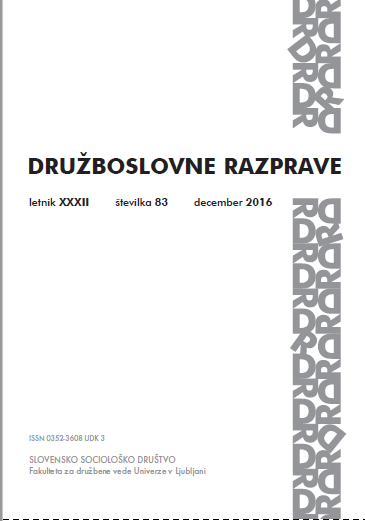ORIS IZBRANIH KAZALNIKOV RETRADICIONALIZACIJE SLOVENSKE DRUŽBE
AN OUTLINE OF SELECTED INDICATORS OF THE RETRADITIONALISATION OF SLOVENIAN SOCIETY
Author(s): Jernej Tiran, Urban VehovarSubject(s): Social history, Evaluation research, Sociology of Culture, Sociology of Politics, Socio-Economic Research
Published by: Slovensko sociološko društvo (in FDV)
Keywords: tradition; modernity; retraditionalisation; traditional subsistence-business model; social integration and regulation;
Summary/Abstract: The article describes selected indicators of the retraditionalisation of Slovenian society. Special attention is paid to the last 25 years. At the outset, key terms are defined, such as tradition, modernity and retraditionalisation. The Slovenian traditional subsistence model is presented as the foundation of the retraditionalisation of the country’s society. The authors claim that Slovenian society remains overly politically integrated in the area of the economy, the state, and at the level of local self-government. Since, amongst other factors, the level of trust in democratic institutions is very low, integration into the local environment is being reinforced, as is the importance of the family. The level of social capital is low. The value system and culture are dominated by egalitarianism, authoritarianism, and “low culture”, along with xenophobia. The outline of the selected indicators reveals that the trends of modernisation in Slovenia, especially in the last 25 years, have now at least partially halted.
Journal: Družboslovne razprave
- Issue Year: 32/2016
- Issue No: 083
- Page Range: 85-107
- Page Count: 24
- Language: Slovenian

